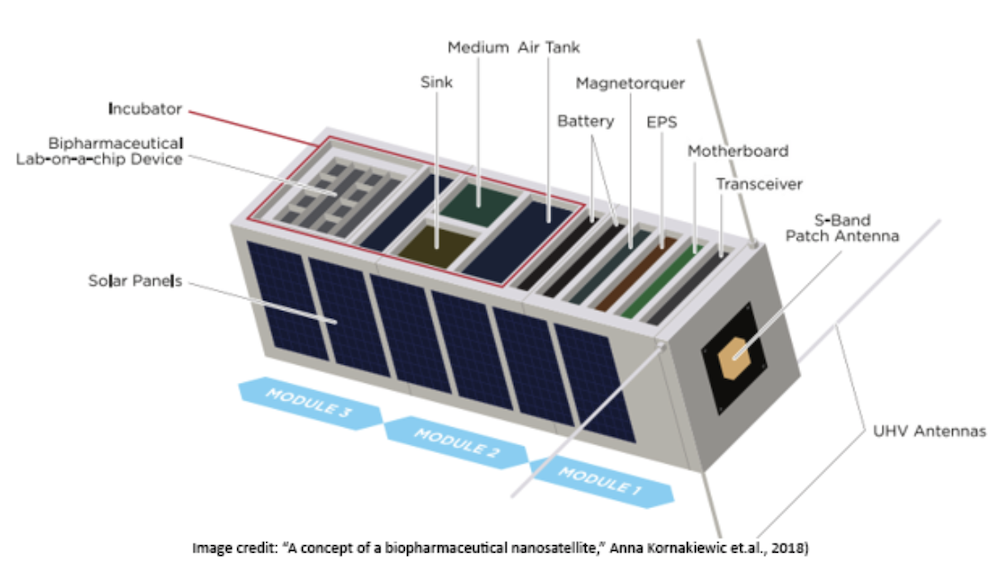
A new small sat system with sample return capability will be available for review at the American Society for Gravitational and Space Research. Orbital Transports, Inc. has been selected to provide a pre-recorded Technical Presentation entitled, “CubeSats (with Optional Payload Return Module) as a Microgravity Research Platform,” at this year’s virtual annual meeting of the American Society for Gravitational and Space Research on November 5-6. This presentation may be seen on the Orbital Transports YouTube Channel.
“This new smallsat system with sample return capability from Orbital Transports opens the door to whole new avenues of space-related research that have never before been possible,” said Dr. Chris Porada, a professor with microgravity-based biological research experience at the Wake Forest Institute for Regenerative Medicine in North Carolina. “Given its numerous unique advantages, it is my prediction that this exciting new platform will quickly become the go-to means for researchers to study the effects of microgravity and space radiation.”
Known as Biotech Zero-G , this solution is just one of the products available in the Biotech & Microgravity section of the SmallSat Catalog. Orbital Transports recognizes that not every microgravity-based biological experiment is suitable for the International Space Station, and that International Space Station lockers and launches aren’t always available. Biotech Zero-G is for the scientist who needs the following for his/her experiments (as compared to the International Space Station):
, this solution is just one of the products available in the Biotech & Microgravity section of the SmallSat Catalog. Orbital Transports recognizes that not every microgravity-based biological experiment is suitable for the International Space Station, and that International Space Station lockers and launches aren’t always available. Biotech Zero-G is for the scientist who needs the following for his/her experiments (as compared to the International Space Station):
- On-demand sample return
- Increasing number of launch options
- Independence from ISS crew availability
- No biological sample restrictions as exist for ISS
- Variable mission duration vs. minimal flexibility on ISS
- Independence from ISS launch/Dragon capsule return schedule
- Polar orbits and ability to transit the South Atlantic Anomaly useful for space radiation research, not accessible from ISS
Biotech Zero-G is a turn-key service for biotechnology and pharmaceutical researchers interested in conducting experiments in space-based microgravity environments. This orbital bio-research platform provides microfluidic and lab-on-a-chip devices within a self-contained autonomous biotech lab module that provides remote monitoring and real-time manipulation of samples.
is a turn-key service for biotechnology and pharmaceutical researchers interested in conducting experiments in space-based microgravity environments. This orbital bio-research platform provides microfluidic and lab-on-a-chip devices within a self-contained autonomous biotech lab module that provides remote monitoring and real-time manipulation of samples.
The experiments are hosted on a small satellite with a payload return capsule capable of atmospheric reentry and rapid recovery of research materials. Launches are available to many destination orbits, including access to polar orbits useful for space radiation research. Mission duration is highly flexible and research materials can be returned from orbit at any time and delivered to the customer within 30 hours of de-orbiting.
